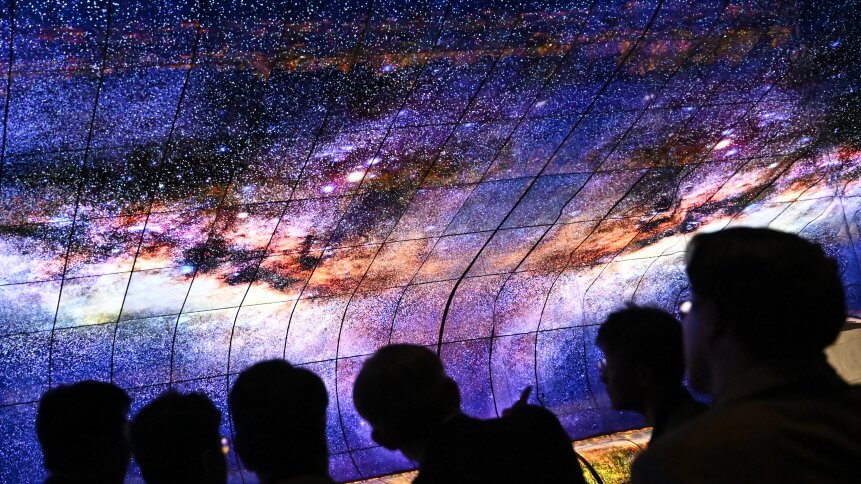IFA 2019: Business lessons from consumer tech?

The world’s biggest tech manufacturers are currently taking the stage at IFA 2019 in Berlin, Germany. The event is billed as Europe’s largest consumer tech show where consumer tech meets innovation. But in a digital world where the lines between B2B and B2C are becoming increasingly blurry, there are a few critical lessons for businesses from all industries too.
On the surface, IFA is simply a platform for 1,939 of the world’s leading tech brands and manufacturers to showcase their latest innovations, products, or services across 163,900 square meters. Sure, many of these products will appear on wish lists and dominate headlines around Black Friday, Cyber Monday and the impending holiday season. But, if you zoom out from that, there is a message for every CEO.
AI, Voice and 5G are impossible to ignore
Technology is continuing to transform the expectations of both businesses and consumers at breakneck speed. Connected living is no longer just a buzzword; it’s becoming a reality. For example, the three big themes of IFA this year are artificial intelligence (AI), voice, and 5G connectivity.
In the opening keynote Richard Yu, CEO of the Huawei Consumer Business Group, explained that 5G would significantly change our life as we know it. He delivered a future vision where IoT, autonomous driving, and smart devices dominate the digital landscape.
Elsewhere, Cristian Amon, President of Qualcomm, also explained why 5G would be a fundamental driver of technological progress. These are not just consumer tech trends, but they will also help usher in a new era of innovation for businesses too.
Here in 2019, your newsfeeds will be full of smart home tech such as bespoke refrigerators that capture shelfies of what is inside your fridge. But dig a little deeper, and you will see that every aspect of the customer journey is being personalized and transformed by technology. What happens to your business when these kinds of experiences become the standard level of expectation?
The rise of connected living and business
Park Il Pyung, LG’s President and Chief Technology Officer, also advised that “anywhere is home with AI.” He went on to talk about how we are increasingly finding comfort through hyper-connectivity no matter where we are.
Our Smart TVs, refrigerators, cars, and other devices are beginning to communicate with each other. LG’s vision is built on three pillars. “Evolve,” “connect,” and “open.” Together they are creating comfort through hyper-connectivity. It’s no longer about whether you find it exciting or creepy. It’s here, and businesses need to operate across this new digital landscape.
Bespoke refrigerators that capture shelfies of what is inside your fridge, duel connected ovens, An AirDresser that steams your clothes whilst you sleep and that’s just from #SamsungIFA2019 Connected living is almost here.
#IFA2019 pic.twitter.com/X2oN7HRc90— Neil Hughes (@NeilCHughes) September 5, 2019
It’s not just about the experience that you create for your customers, but also the employee experience that you provide too. We are entering an era where the average employee will be able to control their heating, lighting, entertainment, and even their shower by asking a digital assistant. These subtle changes are not only increasing our expectations but also delivering a different reality for a digital age.
How modern is your workplace?
Going into the office should not feel like stepping back in time to 2009. And if it does, it won’t be long until your most talented employees move onto an organization that embraces, rather than fears technological change.
A great example is the traditional meeting room with 12 chairs around it and is booked up for weeks in advance. Now that many are working in large open-plan offices, there is an increasing need for smaller huddle rooms that are always available.
A flexible space where a couple of employees can quickly collaborate and invite their remote working colleagues into the conversation too. Getting a room and a day where everyone is in the office can also be challenging and why video chat is rising in popularity.
YOU MIGHT LIKE

The disruptive 5G future of DOOH advertising
Videoconferencing has picked up a bad reputation over the years. Many of the reasons why were perfectly captured in the Zoom ad a few years ago. But Jabra believes that a limited field of vision can be part of the problem too. Cutting employees out of the conversation in an age of inclusivity, where everyone should feel a part of the collaboration process can quickly damage morale within a team.
These are just a few of the problems that Jabra are aiming to tackle with its PanaCast video. A high-quality 180-degree view a room of any size that can quickly adapt to the number of people present and provide useful analytics around how every room is being used certainly feels like a step in the right direction.
There is a stark contrast between the large stuffy meeting rooms of old and smaller collaborative huddle rooms for impromptu conversations. It also highlights just how much our world has changed. Businesses that unite remote teams with those in the office will naturally be more efficient and productive. But what will happen to those that stubbornly carry on with their old ways of working?
Consumer tech shows such as CES and IFA are often criticized for showcasing products that are a solution looking for a problem. But if you dare to scratch beneath the surface of the kooky headlines and aesthetically pleasing portable blenders, there is a valuable message for businesses.
The convergence of emerging technologies
Messe Berlin CEO, Dr. Christian Goke used his keynote at IFA to share his future vision of how emerging technologies such as AI and 5G will impact the world as we know it.
Gokel told the audience: “You will all know the fairy-tale story of a man in the 18th century who fell asleep under a tree and woke up 20 years into a completely different world. Well, I bet you if you would go to sleep right now for just five years, and wake up in time for 2025, you will struggle to recognize many consumer electronics devices.”
On the subject of AI, Goke advised that “it’s not something tangible” and “more of a promise than a real offering.” Here in 2019, it can feel that emerging technologies such as AI, 5G, IoT, and blockchain are nothing but a series of overhyped buzzwords. But if you dare to look further into the future, you will quickly see how they will eventually converge to transform our worlds of both business and pleasure.
Improving the modern workplace and our lifestyle through technology is just the beginning. Only when you stop seeing the world through the lenses of B2B, B2C or consumer or business tech do you begin to see what’s really happening.
Digitally connected living with seamless experiences across devices and sharing of information in real-time is now a standard in and out of the office. However, things get interesting when you throw in data analysis, algorithms, and pattern recognition that are dynamically adapted to the needs of your business. That’s the real game-changer here.
While following the coverage of IFA 2019, I urge you to look beyond your wish lists and future Black Friday or holiday season purchases. Look five years into the future and how you can prepare your business for the inevitable changes ahead. Maybe, the Samsung AirDresser steam that will steam clean your you sleep will play a part in that future too. But that is much more uncertain.








